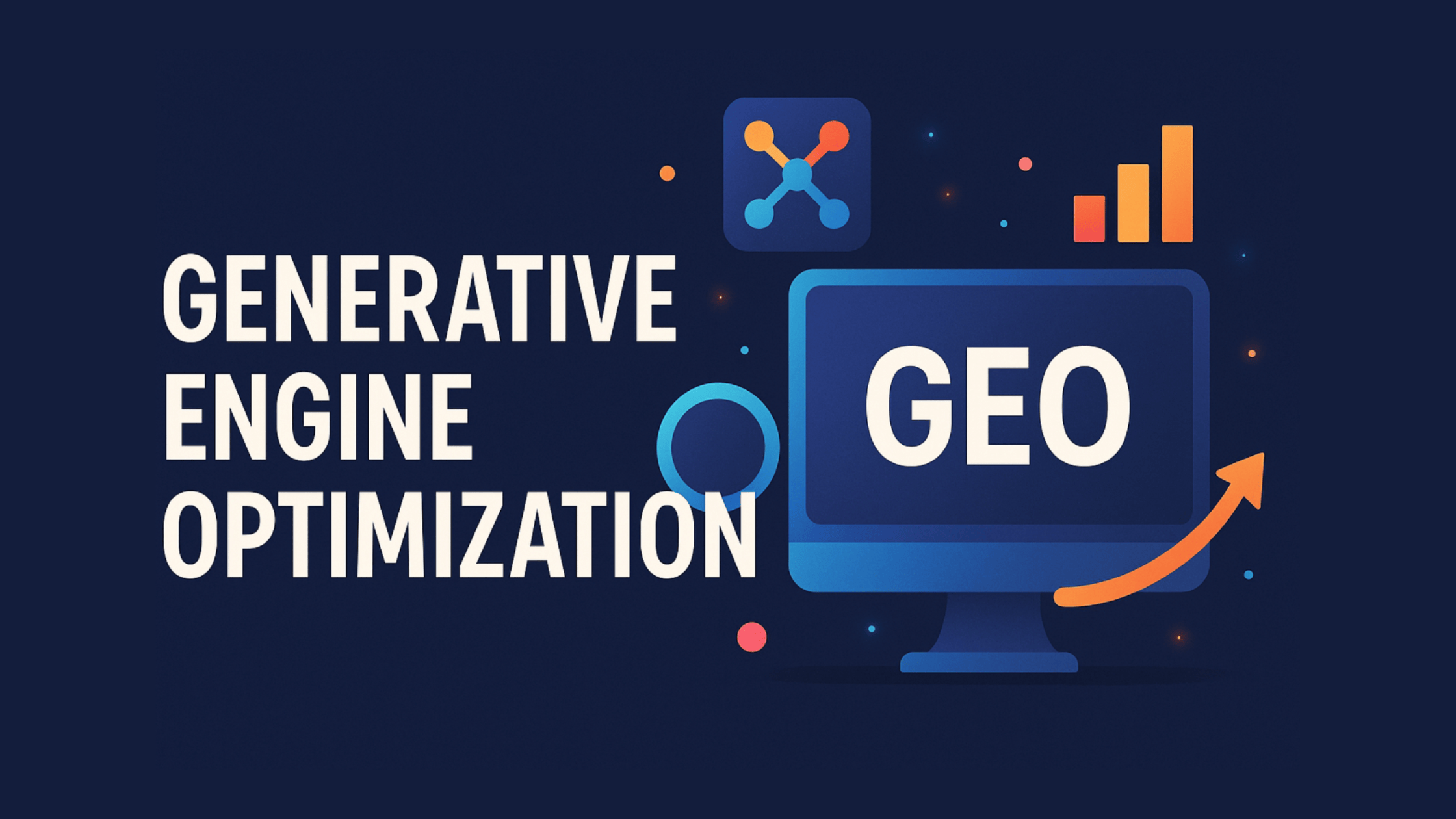Remember the first time someone explained Search Engine Optimization (SEO) to you? Keywords, backlinks, metadata—oh my! Now fast-forward to 2025, where the digital landscape is evolving faster than you can say “ChatGPT.” Welcome to the age of Generative Engine Optimization (GEO)—where instead of optimizing for Google’s web crawler, you're optimizing for AI copilots, assistants, and chatbots that don’t just find answers… they generate them.
Let’s unpack this brave new world, and what it means for the transportation industry.
What is Generative Engine Optimization (GEO)?
In plain English, GEO is the art of ensuring your business shows up in AI-generated answers. Not just in search engine results pages (SERPs), but in the conversational, context-rich responses that tools like ChatGPT, Claude, Gemini, and Perplexity are giving users daily.
Picture this:
"Hey ChatGPT, what’s the best place in Nashville for corporate transportation?"
If your company isn't showing up in that answer—you’re invisible to a growing number of consumers and decision-makers.
Generative engines don’t display blue links. They generate coherent, confident, human-like responses. GEO is about training those models (indirectly) to know you exist, to recognize your authority, and to trust your brand.
How GEO Works: It's Not Magic, It's Math (and a Little Marketing Mojo)
While Google’s algorithm loves backlinks and keyword density, generative AI draws from a soup of structured and unstructured data:
1. High-Authority Content Across the Web
Generative models are trained on vast data sets, including websites, reviews, press articles, directories, FAQs, and even Reddit threads. If your transportation business has clear, factual, helpful content published in high-authority places, it’s more likely to be reflected in AI responses.
2. Structured Data and Semantic Markup
Using schema.org markup and structured data on your site helps AI understand what you are, where you are, and why you matter. If your services, products, and team bios are semantically organized, you’re feeding the model a spoonful of clarity.
3. Consistency Across the Digital Universe
Is your NAP (Name, Address, Phone Number) consistent? Do third-party profiles like LinkedIn, Yelp, TripAdvisor, and Crunchbase all reflect the same messaging? If not, AI might just skip you for a rival who’s more… algorithm-friendly.
4. Answer-Like Content
FAQs, how-tos, and direct-answer blog posts perform particularly well. Think of it as creating “AI snacks”—bite-sized, factual, well-formatted content that models can munch on during training or real-time browsing.
Why GEO Matters (Like, Right Now)
Generative AI is not just for fun chats or writing haikus about pizza. It’s rapidly becoming the default interface for:
Consumer search (“Where should I buy a hybrid bike under $1,000?”)
Business intelligence (“Who’s the market leader in logistics?”)
Decision support (“What trucking company is best to work for OTR routes?” 👀)
Shopping assistants (think: Amazon meets Alexa meets OpenAI)
If your business isn’t GEO-optimized, you’re missing out on where the attention is heading.
Real Talk: GEO is the New SEO
We're not saying SEO is dead (it’s just sleeping with one eye open). But GEO is quickly becoming the second pillar of discoverability. Smart marketers are now:
Publishing authoritative, answer-first content
Refreshing third-party profiles with consistent info
Getting listed in AI-accessible directories
Using structured data to make content legible to machines-
Monitoring how their brand appears in AI-generated responses
Quick GEO Checklist for Businesses
Here’s your quirky-yet-practical to-do list:
Task | Why It Matters |
Claim and update all major directory profiles | AI crawls them for trust signals |
Add schema markup to your website | Helps models parse and prioritize your info |
Create FAQ-style content | Delicious, snackable content for AI |
Get mentioned in reputable media or blogs | Authority matters - even to AI robots |
Monitor mentions using tools like Perplexity, ChatGPT, and Poe | See how your business actually shows up in AI answers |
Final Thought: Don’t Wait for the Algorithm to Forget You
Generative engines are already shaping how people make decisions, buy things, hire services, and plan their lives. The earlier you start showing up in those generated responses, the more you position your brand as an authority in this new frontier.
GEO is not a trend—it’s the natural evolution of how the internet talks about you.
So dust off your metadata, update those Yelp listings, and start speaking fluent AI.
Your future customers aren’t typing “best company in town.”
They’re asking for it.
And here at Conversion Interactive Agency, we can make sure you're the answer. Contact us now to discuss how we can spearhead your new SEO/GEO strategy.


